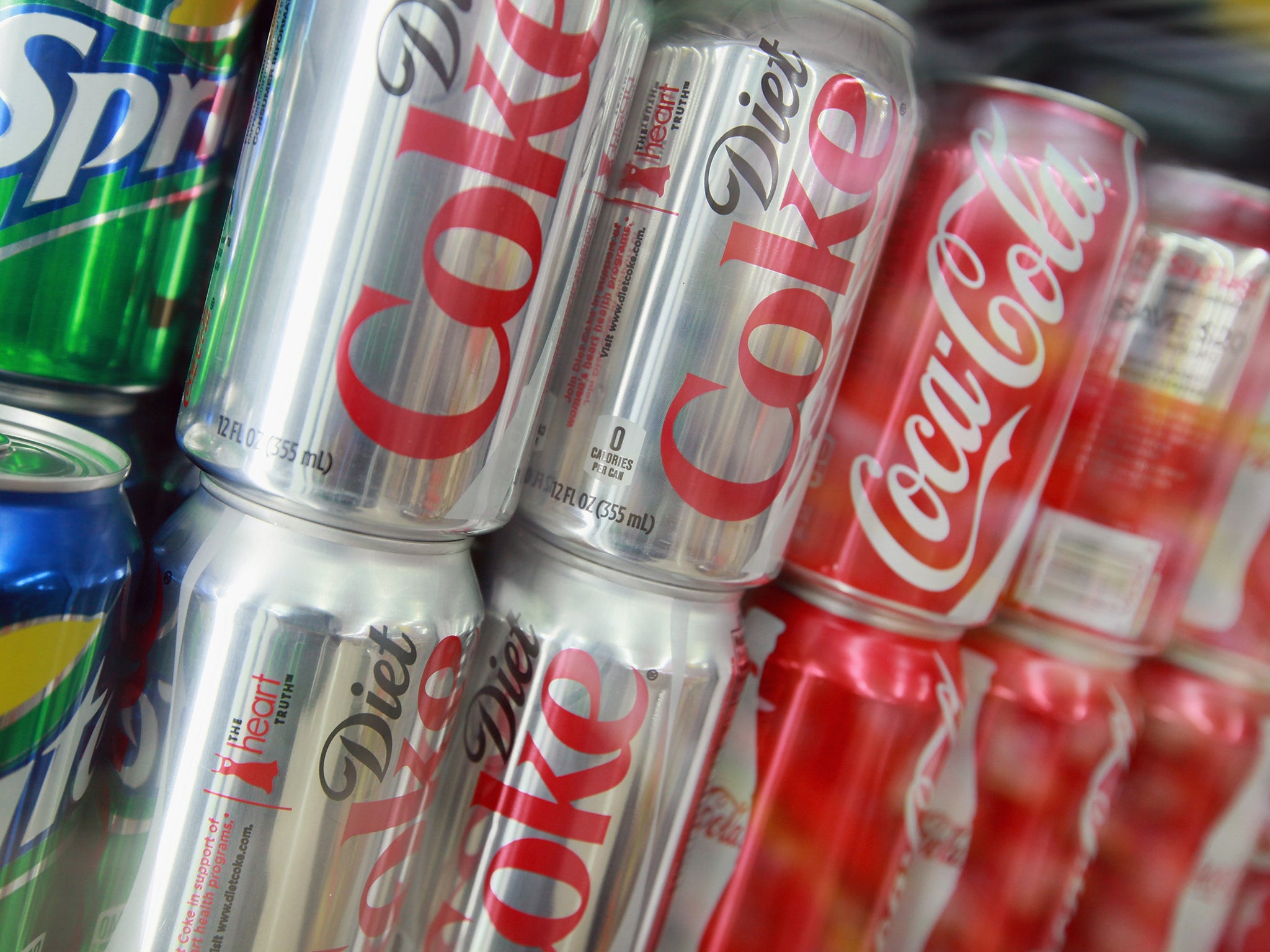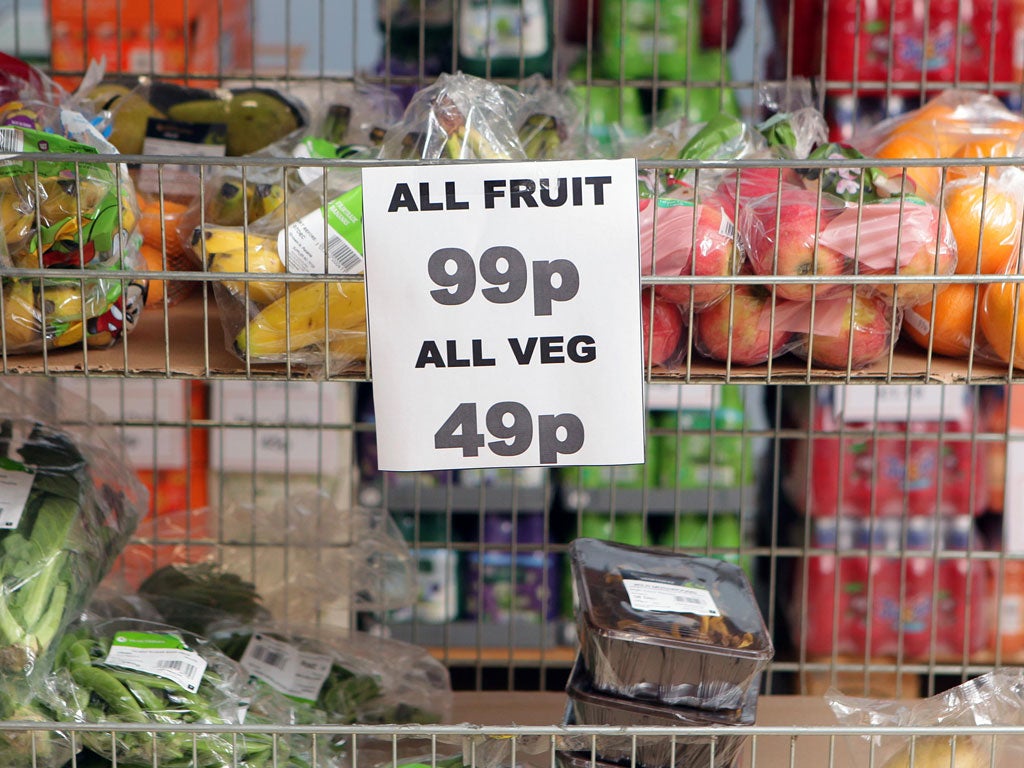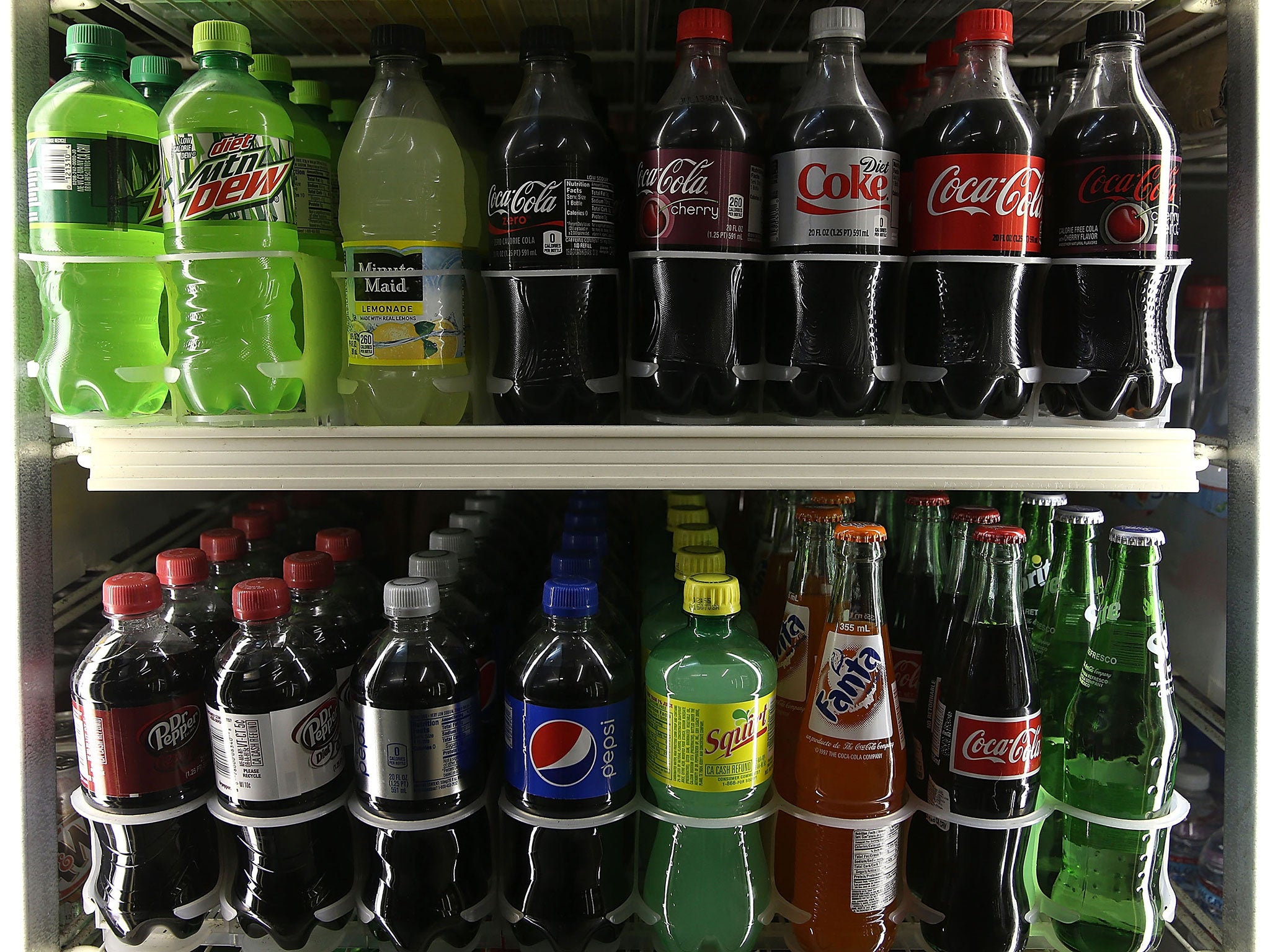Doctors urge 20p tax on sugary drinks to fund low-price fruit and vegetables
The British Medical Association (BMA) said imposing the tax could reduce the prevalence of obesity in the UK by around 180,000 people

Your support helps us to tell the story
From reproductive rights to climate change to Big Tech, The Independent is on the ground when the story is developing. Whether it's investigating the financials of Elon Musk's pro-Trump PAC or producing our latest documentary, 'The A Word', which shines a light on the American women fighting for reproductive rights, we know how important it is to parse out the facts from the messaging.
At such a critical moment in US history, we need reporters on the ground. Your donation allows us to keep sending journalists to speak to both sides of the story.
The Independent is trusted by Americans across the entire political spectrum. And unlike many other quality news outlets, we choose not to lock Americans out of our reporting and analysis with paywalls. We believe quality journalism should be available to everyone, paid for by those who can afford it.
Your support makes all the difference.Unhealthy soft drinks should be hit with a 20p sugar tax as a “useful first step” towards the long-term goal of taxing a wide range of products that fuel obesity, doctors’ leaders are urging.
The British Medical Association (BMA) said imposing the tax could reduce the prevalence of obesity in the UK by around 180,000 people.
The money raised from the tax could be used to subsidise cheaper fruit and vegetables for poor families, the organisation suggests.
With a third of the population projected to be obese by 2030, it also wants to see all free schools and academies adhere to the same “strict food regulations” in place in state schools as well as improved teaching about cooking and healthy eating for pupils.
Its report, Food For Thought, warns that poor diet costs the NHS around £6bn a year, meaning it has a greater impact on its budget than alcohol consumption, smoking or physical inactivity.
The authors said academic research found the healthiest diets cost double the price of the least healthy ones, and while the price of unhealthy foods has been shown to be decreasing over time, the gap between the price of healthy and unhealthy foods is widening. The BMA’s report suggests that imposing a minimum 20p tax on all non-alcoholic water-based beverages with added sugar, including sugar-sweetened soft drinks, energy drinks, fruit drink, sports drinks and fruit-juice concentrates, could help reduce the price of fruit and vegetables.
“We know that the majority of the UK population, particularly low income households, are not consuming enough fruit and vegetables, so financial measures should also be considered to subsidise their price, which has risen by 30 per cent since 2008.”

The BMA that said it would also like to see a ban on all marketing of unhealthy food and drink products to children and young people, adding that a “particular area of concern is the proliferation of marketing online and via social media”.
The report said various mass-media public health campaigns aimed at promoting healthier diets have been found to be “ineffective” in the past.
It also criticises the Government for placing too much emphasis on industry involvement in developing food and nutrition policy in the UK through the use of public-private partnerships, as it said it has led to a “disproportionate focus on personal responsibility and voluntary action by industry, which has delivered limited or negligible public health gains”.
The BMA is the latest body to call for a tax on sugar, a move that was ruled out by Health Secretary Jeremy Hunt last year.
A recent report by the Food Research Collaboration (FRC), which is chaired by Professor Tim Lang of the Centre for Food Policy at City University London, said the Government should stop living in a “fantasy world” and consider taxing unhealthy products.

Sweet but sour: Dental crisis looms
The number of children who need to have decayed teeth removed because of high sugar diets is “frightening”, a leading expert has warned.
Professor Nigel Hunt, dean of the Royal College of Surgeons’ dental faculty, said: “We are reaching crisis point in terms of the number of children needing to go into the dental hospitals for full-blown general anaesthetics for extraction. Almost 26,000 general anaesthetics are being given to five to nine-year-old children every year to have teeth out now... the services just can’t cope.”
Join our commenting forum
Join thought-provoking conversations, follow other Independent readers and see their replies
Comments